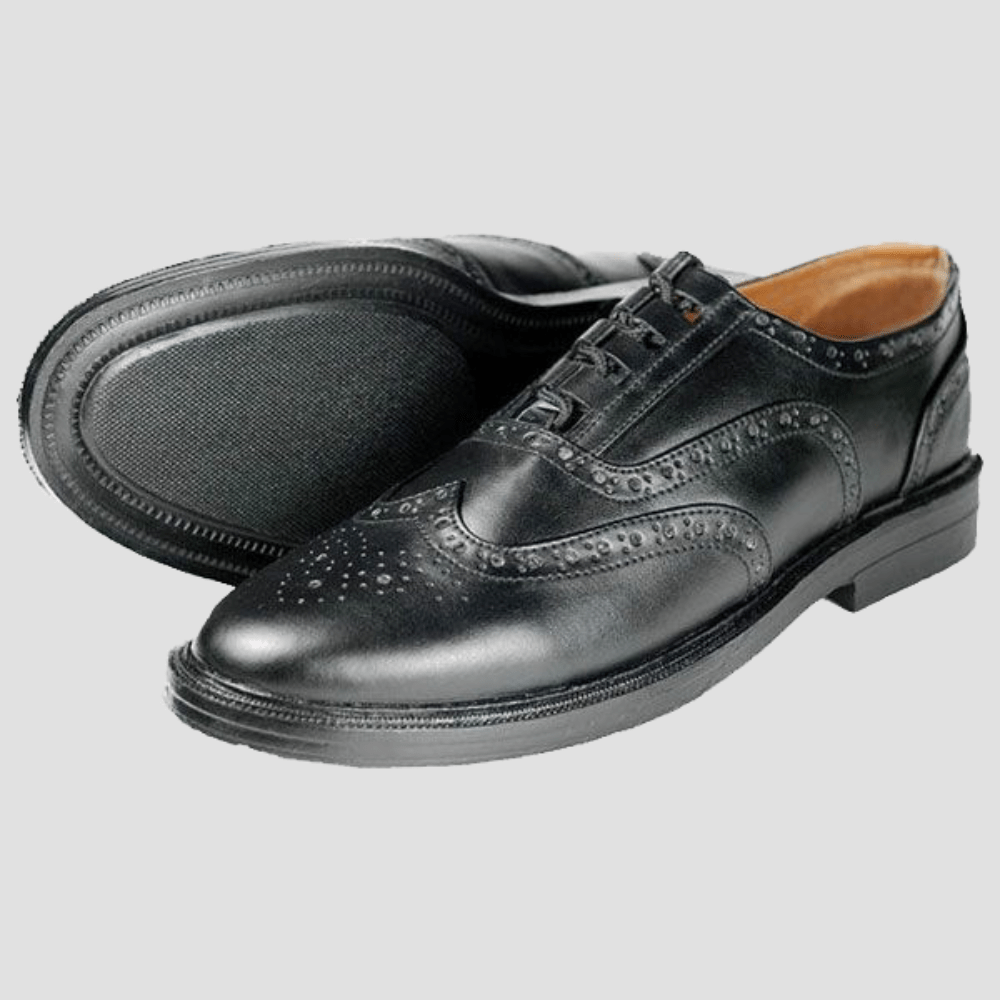
Traditional Leather Custom Made Black Shoes are a big part of Scottish culture. These shoes, often made from high-quality leather, have a long history. They were first worn hundreds of years ago, especially by people living in the Highlands of Scotland. These shoes were important for protecting feet in the tough Scottish weather.
In the past, these shoes were handmade by skilled shoemakers. They would carefully choose the best leather and craft the shoes to fit perfectly. Because they were custom-made, each pair was unique. This made them special and important in Scottish fashion.
The design of these shoes was simple but strong. They usually had a smooth, polished finish, which made them look smart and neat. The black color was popular because it matched well with traditional Scottish clothing, like kilts. People would wear these shoes for important events, such as weddings, dances, and other celebrations.
Over time, the popularity of these shoes grew beyond Scotland. People in other countries admired the quality and craftsmanship of these shoes. Today, traditional leather custom-made black shoes are still worn for special occasions. They are a symbol of Scottish pride and heritage.
These shoes are not just about fashion. They also tell a story of tradition and skill passed down through generations. When you wear a pair of these shoes, you are wearing a piece of history. The care and effort put into making them reflect the values of Scottish culture—hard work, attention to detail, and pride in one’s work.
Even though many shoes are now made by machines, some people still prefer custom-made leather shoes. These shoes are seen as more comfortable and long-lasting. They are also a way to keep the tradition alive. The process of making these shoes by hand is a craft that requires a lot of skill and patience.
In conclusion, traditional leather custom-made black shoes are more than just footwear. They are a connection to the past, a display of craftsmanship, and a part of Scottish identity. Wearing these shoes is a way to honor the history and culture of Scotland.
Choose options

